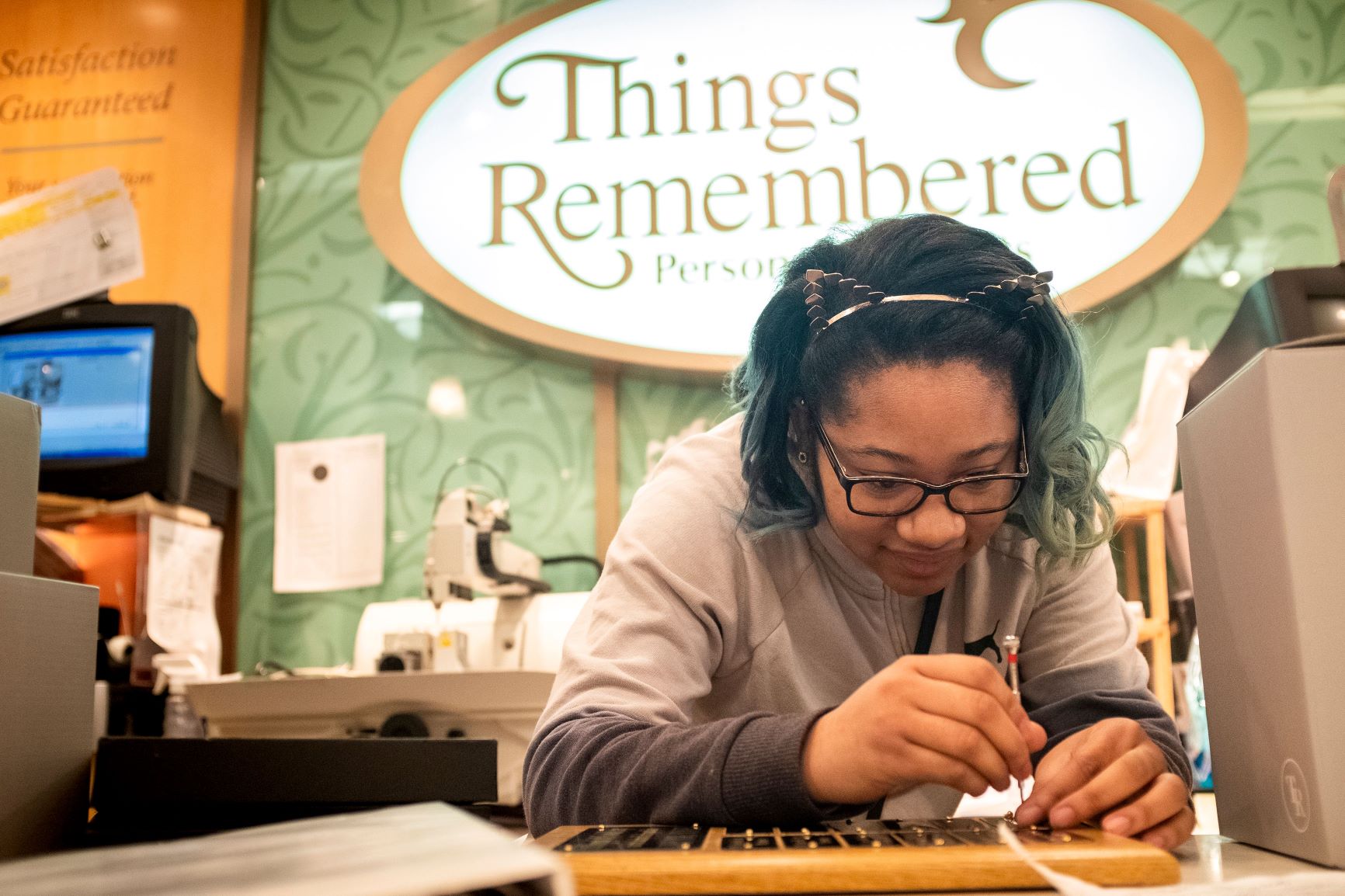We found Danielle Horsley on her next-to-last day on the job. She was behind the counter at Things Remembered, engraving a plaque with the names of fantasy football champions.
This was not her dream job, but it was important to her. It helped pay the bills.
Soon, it would be gone. And Danielle, a 24-year-old part-time college student would be looking for a new second job to cover her $2,500 tuition bill from last fall and the $26,000 in student loans she’s still trying to pay down.

“I need all the jobs I can get,” she told us.
Danielle was among the first people we spoke to for our story, “The Long, Hard Road,” about people who’ve been left behind by the economic recovery.
For Danielle and pretty much everyone else in the story, surviving in post-recession America is harder than the big-picture economic numbers suggest it should be. Stock prices are up. Jobs are plentiful. But millions of Americans are just getting by.
They may find jobs, or, in Danielle’s case, several jobs, but they don’t earn wages or benefits that help them get ahead. They may pay their bills on time, but they’re one illness or broken-down car from financial crisis.
Their savings accounts are stretched. Their health and retirement benefits are inadequate. They need more than they have.
While reporting our story, we met a single mom with two college degrees who was planning to leave her suburban home because her three part-time jobs didn’t cover the mortgage.
We met a 10-year-old boy whose father gave him Mountain Dew as a home remedy for his undiagnosed ADHD.
And we met a father who took out an $8,000 loan for welding school in hopes of doubling the $12-an-hour he makes managing a chili restaurant.
Those stories aren’t outliers. All but the richest 10% of Americans have a lower net worth today than before the Great Recession. Retirement savings for the middle class has fallen and the number of financially insecure households has almost doubled.
The reporters, editors and photographers in our newsroom sensed this from our daily work. We’d met people who fell into a ditch during the recession and were still struggling to climb out. In some cases, we knew them personally, as friends or relatives.
We wanted to tell their stories. So, we decided to spend a year traveling up and down a road that slices through the heart of our region, talking to people still trying to make their way back from the recession.
We had no trouble finding them.
Like Danielle, they’re out there on the road, working hard but going nowhere.
You can find our story here: The Long, Hard Road

